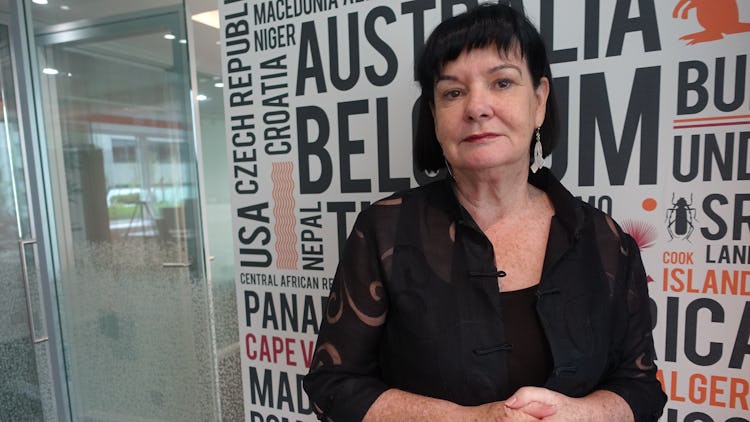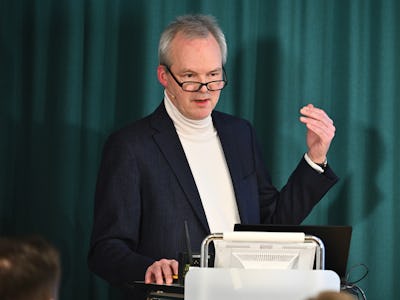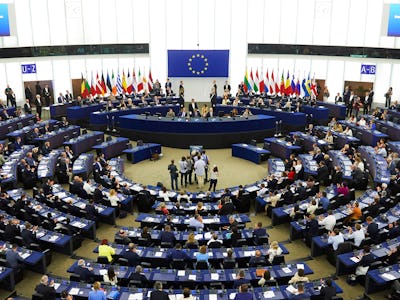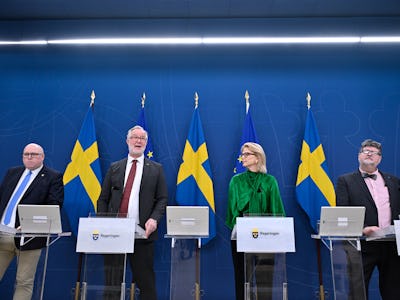The global working class invisible in Swedish newspapers
Globally, 80 percent of the labor force can be considered working class. Without these 2.6 billion people, society would come to a halt. Nevertheless, our examination shows that they are almost completely invisible when Swedish newspapers cover foreign news.
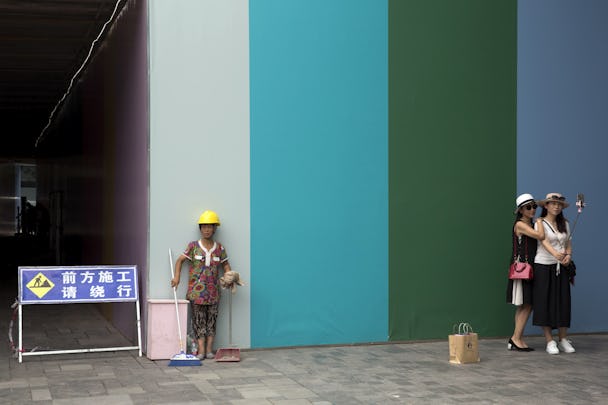
The working class is nearly invisible in Swedish newspaper’s coverage of foreign news. Pictured: Chinese women pose for a selfie near a female worker in Beijing, China.
Arbetet Global has examined 274 articles from six of Sweden’s largest daily newspapers.
The results are clear. Blue-collar workers are interviewed in a meager 0.7 per cent of the articles. As a comparison, the word “Trump” occurs in 9 per cent of the headlines.
The issue of representation – that is, who is visible and who gets a voice – is an ongoing matter of interest for Swedish media.
Most outlets make genuine efforts to get rid of imbalances. But the representation almost always focuses on gender and ethnic background. Class is a blind spot.
Several studies have shown that class misrepresentation is prominent in Swedish media.
Working class is generally underrepresented, while middle and upper class are overrepresented.
On a national level, it is easy to argue that this misrepresentation should be corrected. Inclusion is, in essence, a question of democracy.
“The trend of elites interviewing elites exists in all areas and is one of the scourges that make people all over the world feel a strong sense of alienation. They never recognize themselves in the reporting or are granted a voice”, says Karl-Petter Thorwaldsson, head of the Swedish Trade Union Confederation (LO) and deputy president of the ITUC.
But is it possible to apply the same logic to foreign news?
After all, proximity – be it geographic or cultural – is essential to newsworthiness. As is the potential impact of the story, in regards to how many people are likely to be affected.
Another central task for journalism is to scrutinize and hold those in positions of power accountable.
All of this contributes to a legitimate overrepresentation of so called “elite sources” and makes it reasonable to prioritize covering a presidential election in the USA over a labor dispute in Azerbaijan.
So, is it justified that one Donald Trump is more visible than 2,6 billions of workers? According to Karl-Petter Thorwaldsson, the answer is no.
Because it influences our perception of reality, he believes, journalism also affects the conditions for global trade union work. The lack of reporting on international labor issues makes cross-border organizing more difficult, at a time when it is needed more than ever.
“Describing the reality of people in other countries increases our understanding and emphasizes the importance of international solidarity. But today we live in a clickonomy. Soon we’ll know more about Donald Trump than we do about our own government.”
Read this article in Swedish: Arbetare osynliga i utrikesbevakningen
Counting the global working class
Arbetet Global has examined 274 articles from six of Sweden’s largest newspapers: Aftonbladet, Dagens Nyheter, Expressen, Göteborgs-Posten, Svenska Dagbladet and Upsala Nya Tidning.
The examination includes all articles covering foreign issues – excluding sports, travel and letters to the editor – during four dates: December 10, 2017, March 10, June 10, and September 10, 2018.
In total, 17 articles covered work-related issues in broader sense – that is, questions about the labor market, the world of work and labor law.
Workers were interviewed in two of the 274 examined articles.
The report in its entirety can be downloaded here (in Swedish).

